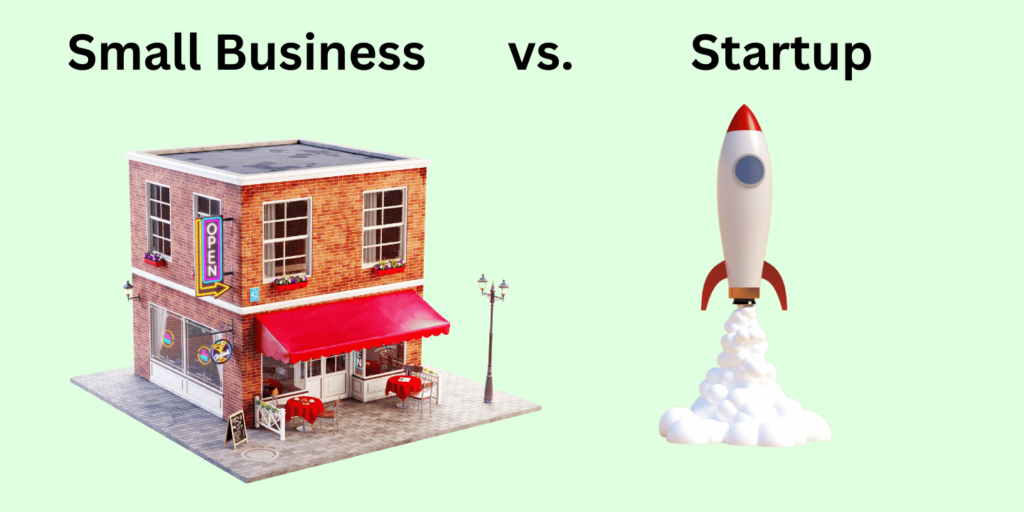Choosing the ideal company is one of life’s major decisions—after all, you’ll spend about a third of your life at your job! Therefore, choosing the company that aligns with your career goals, personal values, and lifestyle is essential. Each company type, whether startups, small, medium, or large, offers unique advantages and challenges that can shape your professional journey. Let’s explore these options to help you make an informed choice.
Startups – A world of Innovation and Opportunities
A startup is a company that is in the very early stages of development and has the potential to scale. It may have one founder or a team of co-founders, with few employees. The focus of a startup is to solve a problem for its target audience. Working at a startup can be rewarding if you’re passionate about the mission and enjoy being hands-on with various business tasks. However, it often involves high pressure, long hours, and some job uncertainty, making it best for adaptable and resilient individuals. Let’s explore the pros and cons.
Pros
Freedom to Innovate: Startups focus on solving problems by encouraging ideas from all employees. Unlike larger companies with strict policies, startups often give more freedom to test and refine ideas for their audience.
Opportunity to Learn new Skills: Startup roles involve wearing multiple hats and working across functions. This allows employees to explore different tasks and build diverse skills.
Flexible Hours: Startups provide the opportunity to work in flexible hours. You can start your day early or late, and take long or short breaks during the day, while balancing out the extra hours to get a business up and running.
Ownership Incentives: While startups do not pay attractive salaries to employees, they compensate them through ESOPs. ESOPs (Employee Stock Ownership Plans), refers to a specific form of employee compensation arrangement. This plan enables employees to acquire ownership stakes in the company.
Collaborative Culture: While working in a startup, you need to collaborate with cross functional teams, as you and your co-workers try to solve common problems and meet clients’ needs in the most resource-efficient ways possible.
Cons
Job Security Risks: About 90% of startups fail, with 10% of startups failing within the first year of business. Around 90% of startups fail, with 10% shutting down in their first year. This makes startup jobs risky, especially for those prioritizing equity over a higher salary. Startups often lack benefits like severance payouts that traditional companies offer.
Limited Resources: Startups often have tight budgets, impacting salaries, equipment, and training opportunities. Employees may need to innovate with available resources and learn on the job.
Lower Compensation: Startup salaries are usually lower than in established firms, though employees may receive equity, typically around 10-15% of company stock reserved for employee options.
Small Scale Organizations – Learning Opportunities and Less Bureaucratic
Small businesses are different to startups and have distinctive characteristics, objectives, and strategies. While startups are driven by disruptive innovation, scalability, and the pursuit of new market opportunities, small businesses focus on local market presence, customer relationships, and profitability, often emphasizing stability and longevity.
Globally, the small and medium-sized enterprises (SMEs) represent over 90% of all businesses and contribute significantly to employment and economic growth. In the US, there are approximately 33.2 million small businesses as of 2024, that account for a whopping 99.9% of all firms in the region, according to the Small Business Administration. These organizations can range from microenterprises with just a handful of employees to those employing up to 500.
Pros
More Varied Roles: Small businesses often have fewer people, so employees take on a variety of tasks outside their main expertise. This exposure helps develop new skills and keeps daily work diverse.
Flat Hierarchy and Visibility: TWith smaller teams, it’s easy to connect with leaders and peers. Contributions are often noticed, which can support quicker career growth.
Ability to Adapt: Small companies are generally more ambitious than large firms. They can quickly adapt to fast-growing markets and are more open to new ideas. The ability to adapt and change makes for an exciting and fulfilling work environment that’s highly rewarding. It also gives innovative professionals a chance to explore their creativity and develop new products and solutions.
Cons
Lower Pay: Unlike large corporations, smaller firms have smaller budgets, not adequate enough to compensate employees fairly.
Lack of adequate Staffing: Small businesses generally have fewer people. Multitasking and heavy work load can affect productivity and output levels.
Limited Advancement Opportunities: With limited positions and locations, career advancement may be slower than in larger firms.
Lack of Brand Recognition: Most small businesses have little or no reputation in the industry. This can affect the future chances of getting a job, as recruiters are not familiar with the previous employer track record. This requires more explanation during job interviews instead of talking about skills and accomplishments.
Medium-Scale Organizations – The Best of Both Worlds
Mid-sized companies—typically defined as those with 500 -1,000 employees—offer a blend of structure and agility, making them an appealing option for many.
Pros
Balanced Work Environment: Mid-sized companies offer a mix of established processes and room for creativity. You’ll have clear guidelines without the rigid rules of larger firms, allowing your ideas to grow.
Access to Resources: With more employees, mid-sized businesses usually provide better resources like training support, advanced tech, and attractive benefits.
Career Growth Opportunities: Mid-sized companies have clear structures, which can help you grow within different roles and explore new career paths as your interests change.
Cons
Limited Specialization: Like smaller firms, mid-sized companies may lack highly specialized roles, often leading to outsourcing certain tasks, so it is important to ensure that they support any specific career goals.
Bureaucratic Challenges: While less bureaucratic than large firms, mid-sized companies still have layers of approval, which can slow decision-making, especially for new ideas.
Competitive Pressure: Mid-sized businesses face tough competition from both smaller and larger companies, which can create a high-pressure work environment and lead to stress.
Large-Scale Organizations – The Powerhouse
Globally, the estimated number of large-scale businesses is around 370,000 to 400,000. While these firms constitute mere 0.1% of the total number of companies worldwide, they wield substantial economic influence, contributing significantly to global GDP and employment, especially in advanced economies.
Pros
Robust Benefits and Resources: Large companies usually offer great benefits like health insurance, retirement plans, and wellness programs, along with access to advanced tools and technologies to boost productivity.
Diverse Career Paths: With many departments and roles, large companies give you chances to grow, change positions, and advance within the organization.
Global Opportunities: Large firms often have international operations, providing exciting chances for overseas assignments and exposure to different cultures.
Cons
Bureaucratic Layers: Multiple management layers can delay decision-making, making it harder to push new ideas forward.
Feeling Less Significant: In large firms, it can be tough to see how your individual contributions fit into the larger picture, which might affect your sense of purpose.
Networking is Key: Building relationships and boosting your visibility across teams is essential for career growth, which can be challenging.
Choosing the Right Fit
As you evaluate your career options, it’s crucial to understand the distinctions between startups, small, medium, and large companies. Each size presents its own unique set of advantages and challenges. Remember, there are exceptions to every rule—a small firm might surprise you with its innovative spirit, while a large corporation could foster a more dynamic environment than expected.
Do your homework by researching companies, reading reviews, and speaking with current or former employees. This diligence will help you find a workplace that not only meets your professional needs but also aligns with your personal values and lifestyle aspirations.




